An Encomium for Jesus: Luke, Rhetoric, and the Story of Jesus
Published: May 2020
£50.00
Luke's narrative about Jesus followed the conventions for ancient biography. Trained in rhetoric, Luke employed the genre of the encomium, which regularly used to showcase biographical aspects of a person's life worthy of honour. An Encomium for Jesus argues that Luke mastered the genre, its conventional topics, and specific instructions for composing one.
The usual topics of an encomium served as Luke's template to organize and narrate the life of Jesus. The first topic,'origins', displayed Jesus' worth in terms of his geographical origins (Bethlehem) and generational origins (son of David, heir to his throne). His genealogy confirms a very noble ancestry. Angels and prophets speak to the importance of his birth, all conventional items.
Second, Jesus was raised as an observant Israelite: circumcised, dedicated, and an annual participant at Passover; he customarily attended synagogue. Although precocious, he lacked training in a familial virtue, which he learned subsequently by obedience to his parents.
An encomium focused on a person's actions, generally described in terms of the canonical virtues, wisdom, courage, justice and self-control. Luke adeptly portrayed Jesus' actions according to these virtues, correctly presuming that his audience would label this or that action as virtuous, a safe assumption. Jesus was wise in understanding people, courageous in facing death, just in his teaching, and moderate in controlling emotional reactions.
An encomium should also speak of a person's death, a conventional feature in funeral oratory. Luke employed the tradition of the 'noble death' to highlight aspects of Jesus' death, especially its voluntary and beneficial aspects. Most importantly, he narrated the many posthumous honours awarded Jesus, as cited in Acts: he did not see death; God vindicated and enthroned him; and he became the Author of salvation. Thus Luke composed a conventional Encomium for Jesus.
An Encomium for Jesus: Luke, Rhetoric, and the Story of Jesus
£50.00
Luke's narrative about Jesus followed the conventions for ancient biography. Trained in rhetoric, Luke employed the genre of the encomium, which regularly used to showcase biographical aspects of a person's life worthy of honour. An Encomium for Jesus argues that Luke mastered the genre, its conventional topics, and specific instructions for composing one.
The usual topics of an encomium served as Luke's template to organize and narrate the life of Jesus. The first topic,'origins', displayed Jesus' worth in terms of his geographical origins (Bethlehem) and generational origins (son of David, heir to his throne). His genealogy confirms a very noble ancestry. Angels and prophets speak to the importance of his birth, all conventional items.
Second, Jesus was raised as an observant Israelite: circumcised, dedicated, and an annual participant at Passover; he customarily attended synagogue. Although precocious, he lacked training in a familial virtue, which he learned subsequently by obedience to his parents.
An encomium focused on a person's actions, generally described in terms of the canonical virtues, wisdom, courage, justice and self-control. Luke adeptly portrayed Jesus' actions according to these virtues, correctly presuming that his audience would label this or that action as virtuous, a safe assumption. Jesus was wise in understanding people, courageous in facing death, just in his teaching, and moderate in controlling emotional reactions.
An encomium should also speak of a person's death, a conventional feature in funeral oratory. Luke employed the tradition of the 'noble death' to highlight aspects of Jesus' death, especially its voluntary and beneficial aspects. Most importantly, he narrated the many posthumous honours awarded Jesus, as cited in Acts: he did not see death; God vindicated and enthroned him; and he became the Author of salvation. Thus Luke composed a conventional Encomium for Jesus.
Persuading God: Rhetorical Studies of First-Person Psalms
Published: Sep 2017
£19.00 – £45.00
Written by a scholar of rhetoric, Persuading God demonstrates that the first-person psalms that make up over a third of the Book of Psalms were designed not simply to express the feelings of individual Israelites but to persuade God to act.
The book casts a new light on the roles of all the players in the situations in which the psalms were composed and performed: the person represented by the speaker on whose particular troubles the psalm is based, the spectators and opponents who are sometimes addressed directly by the speaker, the poet-musicians who craft the speaker's case and occasionally undermine it, and most of all, God as the direct addressee whose presumed openness to persuasion and willingness to intervene underlie the entire event.
The readings provide new explanations for many long-standing puzzles: how to deal with the long string of imprecations in Psalm 109, whether Psalm 4 is best read as protesting a false accusation or as countering apostasy, why so many verses in Psalm 62 begin with the exclamation ach , and, more generally, why so many first-person psalms seem to swing abruptly between despair and praise.
The book demonstrates the relevance of contemporary rhetorical theory to Hebrew Bible studies, including the work of ChaÌøm Perelman and Lucie Olbrechts-Tyteca, Kenneth Burke, and Mikhail Bakhtin. It also illuminates the state of rhetorical practice in the ancient Near East at the same time that rhetorical theories were first being codified and taught in archaic and classical Athens.
Persuading God: Rhetorical Studies of First-Person Psalms
£19.00 – £45.00
Written by a scholar of rhetoric, Persuading God demonstrates that the first-person psalms that make up over a third of the Book of Psalms were designed not simply to express the feelings of individual Israelites but to persuade God to act.
The book casts a new light on the roles of all the players in the situations in which the psalms were composed and performed: the person represented by the speaker on whose particular troubles the psalm is based, the spectators and opponents who are sometimes addressed directly by the speaker, the poet-musicians who craft the speaker's case and occasionally undermine it, and most of all, God as the direct addressee whose presumed openness to persuasion and willingness to intervene underlie the entire event.
The readings provide new explanations for many long-standing puzzles: how to deal with the long string of imprecations in Psalm 109, whether Psalm 4 is best read as protesting a false accusation or as countering apostasy, why so many verses in Psalm 62 begin with the exclamation ach , and, more generally, why so many first-person psalms seem to swing abruptly between despair and praise.
The book demonstrates the relevance of contemporary rhetorical theory to Hebrew Bible studies, including the work of ChaÌøm Perelman and Lucie Olbrechts-Tyteca, Kenneth Burke, and Mikhail Bakhtin. It also illuminates the state of rhetorical practice in the ancient Near East at the same time that rhetorical theories were first being codified and taught in archaic and classical Athens.
Biblical Rhetoric and Rhetorical Criticism
Published: Oct 2015
£20.00 – £80.00
This volume will prove a classic textbook on rhetorical criticism in the Bible, especially the Hebrew Bible. Following the lead of the famous Presidential Address to the Society of Biblical Literature in 1968 by James Muilenburg, 'Form Criticism and Beyond', Jack Lundbom has for over 40 years been developing and shaping the field with a stream of papers. 26 of them (three not previously published) are gathered into this volume.
Hebrew rhetoric has a long history, reaching back even into the early Israelite period. Recognition of rhetorical elements in the Bible can be seen in Hillel, Augustine, ibn Ezra, and Calvin, as well as among certain biblical scholars of the 18th and 19th centuries. But the revival of rhetoric and the modern method of rhetorical criticism is more recent, having begun in America among classical scholars in the early 1900s, and having been widely adopted by biblical scholars in the last third of the twentieth century. Biblical scholars today invariably have rhetorical criticism in their exegetical toolbox, but the field lacks such a comprehensive corpus of studies as the present volume supplies.
Reading the Bible with an eye to the rhetorical nature of its discourse —not just the style, but its structures and modes of argumentation —gives one a sharpened view of biblical figures, their legacy, and much else in the biblical text. One also gets new insight into the audiences for whom biblical messages were originally intended. Rhetorical criticism offers a ready yield for all those seeking a closer understanding of the biblical texts.
Biblical Rhetoric and Rhetorical Criticism
£20.00 – £80.00
This volume will prove a classic textbook on rhetorical criticism in the Bible, especially the Hebrew Bible. Following the lead of the famous Presidential Address to the Society of Biblical Literature in 1968 by James Muilenburg, 'Form Criticism and Beyond', Jack Lundbom has for over 40 years been developing and shaping the field with a stream of papers. 26 of them (three not previously published) are gathered into this volume.
Hebrew rhetoric has a long history, reaching back even into the early Israelite period. Recognition of rhetorical elements in the Bible can be seen in Hillel, Augustine, ibn Ezra, and Calvin, as well as among certain biblical scholars of the 18th and 19th centuries. But the revival of rhetoric and the modern method of rhetorical criticism is more recent, having begun in America among classical scholars in the early 1900s, and having been widely adopted by biblical scholars in the last third of the twentieth century. Biblical scholars today invariably have rhetorical criticism in their exegetical toolbox, but the field lacks such a comprehensive corpus of studies as the present volume supplies.
Reading the Bible with an eye to the rhetorical nature of its discourse —not just the style, but its structures and modes of argumentation —gives one a sharpened view of biblical figures, their legacy, and much else in the biblical text. One also gets new insight into the audiences for whom biblical messages were originally intended. Rhetorical criticism offers a ready yield for all those seeking a closer understanding of the biblical texts.
Jeremiah Closer Up: The Prophet and the Book
Published: May 2013
£15.00 – £40.00
Closer up than what? Many recent studies of Jeremiah leave us with but a faint glimmer of this great Hebrew prophet; in some he disappears completely into later tradition. Some scholars think that the book of Jeremiah lacks historical veracity: when it was composed, supposedly in the late exilic or postexilic periods, historical memories had been dimmed and ideology had come to dominate the Jeremiah legacy. The present essays combine to argue that both the prophet and his book can be viewed “closer up” than the imagination of many modern-day interpreters will allow.
The first three essays discuss the text, rhetoric and composition of the book of Jeremiah. The longer Hebrew text is given preference over the Greek Septuagint text, which means that we can dispense entirely with the idea that scribes were busily writing, editing and expanding the Jeremiah book in Babylon. Rhetorical and other delimiting criteria show that Jeremiah’s so-called ‘Temple Sermon’ (7.1-15) is rather a cluster of three oracles manifesting a rudimentary form of logic. Finally, a correlation of Gedaliah’s murder with the exile of 582 argues for a nearly four-year existence of the remnant community at Mizpah, more than enough time for Jeremiah and Baruch to write up the events following the destruction of Jerusalem.
The remaining essays discuss Jeremiah’s views of history, the created order, the covenant, and nations of the world, as well as the prophet’s so-called ‘confessions’. These extraordinary insights into the interior disposition of a Hebrew prophet reveal how Jeremiah felt about the word he had to preach, and what impact it had on him personally. The confessions are analysed both as formal psalm-like laments, and as gems of rhetorical composition.
Jeremiah Closer Up: The Prophet and the Book
£15.00 – £40.00
Closer up than what? Many recent studies of Jeremiah leave us with but a faint glimmer of this great Hebrew prophet; in some he disappears completely into later tradition. Some scholars think that the book of Jeremiah lacks historical veracity: when it was composed, supposedly in the late exilic or postexilic periods, historical memories had been dimmed and ideology had come to dominate the Jeremiah legacy. The present essays combine to argue that both the prophet and his book can be viewed “closer up” than the imagination of many modern-day interpreters will allow.
The first three essays discuss the text, rhetoric and composition of the book of Jeremiah. The longer Hebrew text is given preference over the Greek Septuagint text, which means that we can dispense entirely with the idea that scribes were busily writing, editing and expanding the Jeremiah book in Babylon. Rhetorical and other delimiting criteria show that Jeremiah’s so-called ‘Temple Sermon’ (7.1-15) is rather a cluster of three oracles manifesting a rudimentary form of logic. Finally, a correlation of Gedaliah’s murder with the exile of 582 argues for a nearly four-year existence of the remnant community at Mizpah, more than enough time for Jeremiah and Baruch to write up the events following the destruction of Jerusalem.
The remaining essays discuss Jeremiah’s views of history, the created order, the covenant, and nations of the world, as well as the prophet’s so-called ‘confessions’. These extraordinary insights into the interior disposition of a Hebrew prophet reveal how Jeremiah felt about the word he had to preach, and what impact it had on him personally. The confessions are analysed both as formal psalm-like laments, and as gems of rhetorical composition.
Reading Ideologies: Essays on the Bible and Interpretation in Honor of Mary Ann Tolbert
Published: Sep 2011
£75.00
Mary Ann Tolbert has been a pioneering voice in what we have now come to call 'interdisciplinary reading' of the Bible. In the early stages of her career, Tolbert used New Testament parables to push biblical scholarship beyond the traditional confines of historical-critical methods. Over the past four decades, she has made significant contributions to psychoanalytical, narrative, rhetorical, feminist, and queer readings of the Bible, and has interrogated the social location of biblical interpreters as well as the ideological implications of reading and reading methodologies.
Divided into three main sections, this collection of essays from biblical scholars around the world to honor Tolbert engage the very issues that have driven and defined Tolbert's scholarship: reading between the historical and the literary; reading between biblical authority and social location; and reading between gender and sexuality. The title of the collection focuses on an often-used but arguably under-examined term in biblical studies: 'ideology'. Together, essays in this volume not only perform ideological criticism of the Bible but also profess the ideological nature of criticism itself, since —regardless of 'what' and 'how' one is reading —the act of reading is always already infused with ideology. By highlighting the work of ideology in interpretation, this volume ultimately suggests that while ideology impacts interpretation of meaning, the meaning of ideology itself also needs to be interpreted.
Reading Ideologies: Essays on the Bible and Interpretation in Honor of Mary Ann Tolbert
£75.00
Mary Ann Tolbert has been a pioneering voice in what we have now come to call 'interdisciplinary reading' of the Bible. In the early stages of her career, Tolbert used New Testament parables to push biblical scholarship beyond the traditional confines of historical-critical methods. Over the past four decades, she has made significant contributions to psychoanalytical, narrative, rhetorical, feminist, and queer readings of the Bible, and has interrogated the social location of biblical interpreters as well as the ideological implications of reading and reading methodologies.
Divided into three main sections, this collection of essays from biblical scholars around the world to honor Tolbert engage the very issues that have driven and defined Tolbert's scholarship: reading between the historical and the literary; reading between biblical authority and social location; and reading between gender and sexuality. The title of the collection focuses on an often-used but arguably under-examined term in biblical studies: 'ideology'. Together, essays in this volume not only perform ideological criticism of the Bible but also profess the ideological nature of criticism itself, since —regardless of 'what' and 'how' one is reading —the act of reading is always already infused with ideology. By highlighting the work of ideology in interpretation, this volume ultimately suggests that while ideology impacts interpretation of meaning, the meaning of ideology itself also needs to be interpreted.
Judas and the Rhetoric of Comparison in the Fourth Gospel
Published: Apr 2010
£50.00
Why is Judas repeatedly contrasted in the Fourth Gospel with other characters, and why is he repeatedly depicted in these comparisons as the consummate defector? The answer to these questions, Martin argues, lies in the ancient rhetorical theory and practice of 'syncrisis', the formal, rhetorical comparison of persons or things.
Surveying the Graeco-Roman textbooks of composition that taught this device and the ancient authors who used it, Martin shows that syncrisis was often used to juxtapose 'genera' or 'groups' via their 'outstanding' or 'extreme' members. In such comparisons, a two-level drama unfolds, with the verdict of superiority being applicable both to the individuals being compared and to the groups they represent. The Johannine Judas, Martin argues, is featured in this manner of comparison over against Peter, and his portrayal in the Gospel as the consummate defector points, along with several other clues, to his identity as a representative of the schismatics who seceded from the Johannine community and who are described in 1, 2 and 3 John.
Judas and the Rhetoric of Comparison in the Fourth Gospel
£50.00
Why is Judas repeatedly contrasted in the Fourth Gospel with other characters, and why is he repeatedly depicted in these comparisons as the consummate defector? The answer to these questions, Martin argues, lies in the ancient rhetorical theory and practice of 'syncrisis', the formal, rhetorical comparison of persons or things.
Surveying the Graeco-Roman textbooks of composition that taught this device and the ancient authors who used it, Martin shows that syncrisis was often used to juxtapose 'genera' or 'groups' via their 'outstanding' or 'extreme' members. In such comparisons, a two-level drama unfolds, with the verdict of superiority being applicable both to the individuals being compared and to the groups they represent. The Johannine Judas, Martin argues, is featured in this manner of comparison over against Peter, and his portrayal in the Gospel as the consummate defector points, along with several other clues, to his identity as a representative of the schismatics who seceded from the Johannine community and who are described in 1, 2 and 3 John.
Identity and Interaction in the Ancient Mediterranean: Jews, Christians and Others. Essays in Honour of Stephen G. Wilson
Published: Oct 2007
£50.00
Stephen G. Wilson was Professor of Religion at Carleton University, Ottawa, and Director of the College of Humanities until his retirement in 2007. His contributions to the study of the religious identities of Jews, Christians, and Gentiles in the first three centuries of the Common Era are widely acknowledged; his interests have been no less in the contrasting and sometimes conflicting religious identities within each of these three groups.
Among his best-known publications are The Gentiles and the Gentile Mission in Luke —Acts (1973), Luke and the Law (1983), Related Strangers: Jews and Christians 70 —170 CE (1995), and Leaving the Fold: Defectors and Apostates in Antiquity (2004). The present collection of essays develops further Wilson's researches on the general theme of identity and interaction.
The sixteen contributors to this Festschrift include Kim Stratton on curse rhetoric, Adele Reinhartz on Caiaphas, Willi Braun on meals and social formation, Philip Harland on meals and social labelling, Richard Ascough on missionizing associations, John Barclay on Judaean identity in Josephus, John Kloppenborg on the recipients of the Letter of James, Laurence Broadhurst on ancient music, Larry Hurtado on manuscripts and identity, Edith Humphey on naming in the Apocalypse, Michele Murray on the Apostolic Constitutions, Roger Beck on the Late Antique 'Horoscope of Islam', Graydon Snyder on the Ethiopian Jews, Alan Segal on Daniel Boyarin, Robert Morgan on theology vs religious studies, and William Arnal on scholarly identities in the study of Christian Origins.
Identity and Interaction in the Ancient Mediterranean: Jews, Christians and Others. Essays in Honour of Stephen G. Wilson
£50.00
Stephen G. Wilson was Professor of Religion at Carleton University, Ottawa, and Director of the College of Humanities until his retirement in 2007. His contributions to the study of the religious identities of Jews, Christians, and Gentiles in the first three centuries of the Common Era are widely acknowledged; his interests have been no less in the contrasting and sometimes conflicting religious identities within each of these three groups.
Among his best-known publications are The Gentiles and the Gentile Mission in Luke —Acts (1973), Luke and the Law (1983), Related Strangers: Jews and Christians 70 —170 CE (1995), and Leaving the Fold: Defectors and Apostates in Antiquity (2004). The present collection of essays develops further Wilson's researches on the general theme of identity and interaction.
The sixteen contributors to this Festschrift include Kim Stratton on curse rhetoric, Adele Reinhartz on Caiaphas, Willi Braun on meals and social formation, Philip Harland on meals and social labelling, Richard Ascough on missionizing associations, John Barclay on Judaean identity in Josephus, John Kloppenborg on the recipients of the Letter of James, Laurence Broadhurst on ancient music, Larry Hurtado on manuscripts and identity, Edith Humphey on naming in the Apocalypse, Michele Murray on the Apostolic Constitutions, Roger Beck on the Late Antique 'Horoscope of Islam', Graydon Snyder on the Ethiopian Jews, Alan Segal on Daniel Boyarin, Robert Morgan on theology vs religious studies, and William Arnal on scholarly identities in the study of Christian Origins.
Timothy’s Task, Paul’s Prospect: A New Reading of 2 Timothy
Published: Sep 2006
£55.00
In this challenging book, Craig Smith propounds the novel thesis that the famous lines in 2 Timothy 4 where 'Paul' announces that the time of his departure has come have been misunderstood. This is no farewell speech, Smith avers, and Paul is not intending to pass on the baton to his younger colleague, Timothy.
Deploying epistolary analysis and rhetorical criticism, Smith shows that these verses (4:1-8) do not have the literary structure or the vocabulary of a testament or a farewell; rather, they are a 'charge', an authoritative command, comprised of five specific formal elements. This charge form is found also in the exorcism command and in some magical texts, Christian and non-Christian.
From this perspective, Paul's being poured out as a libation is his experience of preaching to the Gentiles at his first trial, his 'departure' is the imminent release from prison that he is expecting, the fight he has fought and the race he has finished are his trial that he has withstood. Far from appointing Timothy as his successor, he is contemplating a continued companionship and collegiality as they continue their ministry together.
Timothy’s Task, Paul’s Prospect: A New Reading of 2 Timothy
£55.00
In this challenging book, Craig Smith propounds the novel thesis that the famous lines in 2 Timothy 4 where 'Paul' announces that the time of his departure has come have been misunderstood. This is no farewell speech, Smith avers, and Paul is not intending to pass on the baton to his younger colleague, Timothy.
Deploying epistolary analysis and rhetorical criticism, Smith shows that these verses (4:1-8) do not have the literary structure or the vocabulary of a testament or a farewell; rather, they are a 'charge', an authoritative command, comprised of five specific formal elements. This charge form is found also in the exorcism command and in some magical texts, Christian and non-Christian.
From this perspective, Paul's being poured out as a libation is his experience of preaching to the Gentiles at his first trial, his 'departure' is the imminent release from prison that he is expecting, the fight he has fought and the race he has finished are his trial that he has withstood. Far from appointing Timothy as his successor, he is contemplating a continued companionship and collegiality as they continue their ministry together.
The Lukan Passion and the Praiseworthy Death
Published: Oct 2005
£40.00
In the ancient world, crucifixion epitomized all that was shameful, servile and lowly. Jesus' death on a cross would have been a stumbling block for many. Luke recognized this prevailing attitude toward crucifixion, and sought to show that Jesus' death was noble and praiseworthy, even according to the Roman world's own standards.
Scaer argues that Luke drew upon the Noble Death tradition, especially as found in Graeco-Roman rhetoric, in depicting Jesus as a man of courage and virtue. Luke also made use of Jewish-Hellenistic martyrological traditions to present Jesus' death as worthy not only of honour, but even of emulation. Most provocatively, Scaer contends that the third evangelist drew specific motifs from the Socrates story in order to show that the founder of the new Christian movement was a noble and just man, deserving of the utmost respect.
In using these Graeco-Roman sources as he fashioned his narrative of Jesus' death, Luke reveals himself as a masterful author in the classical tradition, intent on portraying Christianity as a world class religion.
The Lukan Passion and the Praiseworthy Death
£40.00
In the ancient world, crucifixion epitomized all that was shameful, servile and lowly. Jesus' death on a cross would have been a stumbling block for many. Luke recognized this prevailing attitude toward crucifixion, and sought to show that Jesus' death was noble and praiseworthy, even according to the Roman world's own standards.
Scaer argues that Luke drew upon the Noble Death tradition, especially as found in Graeco-Roman rhetoric, in depicting Jesus as a man of courage and virtue. Luke also made use of Jewish-Hellenistic martyrological traditions to present Jesus' death as worthy not only of honour, but even of emulation. Most provocatively, Scaer contends that the third evangelist drew specific motifs from the Socrates story in order to show that the founder of the new Christian movement was a noble and just man, deserving of the utmost respect.
In using these Graeco-Roman sources as he fashioned his narrative of Jesus' death, Luke reveals himself as a masterful author in the classical tradition, intent on portraying Christianity as a world class religion.

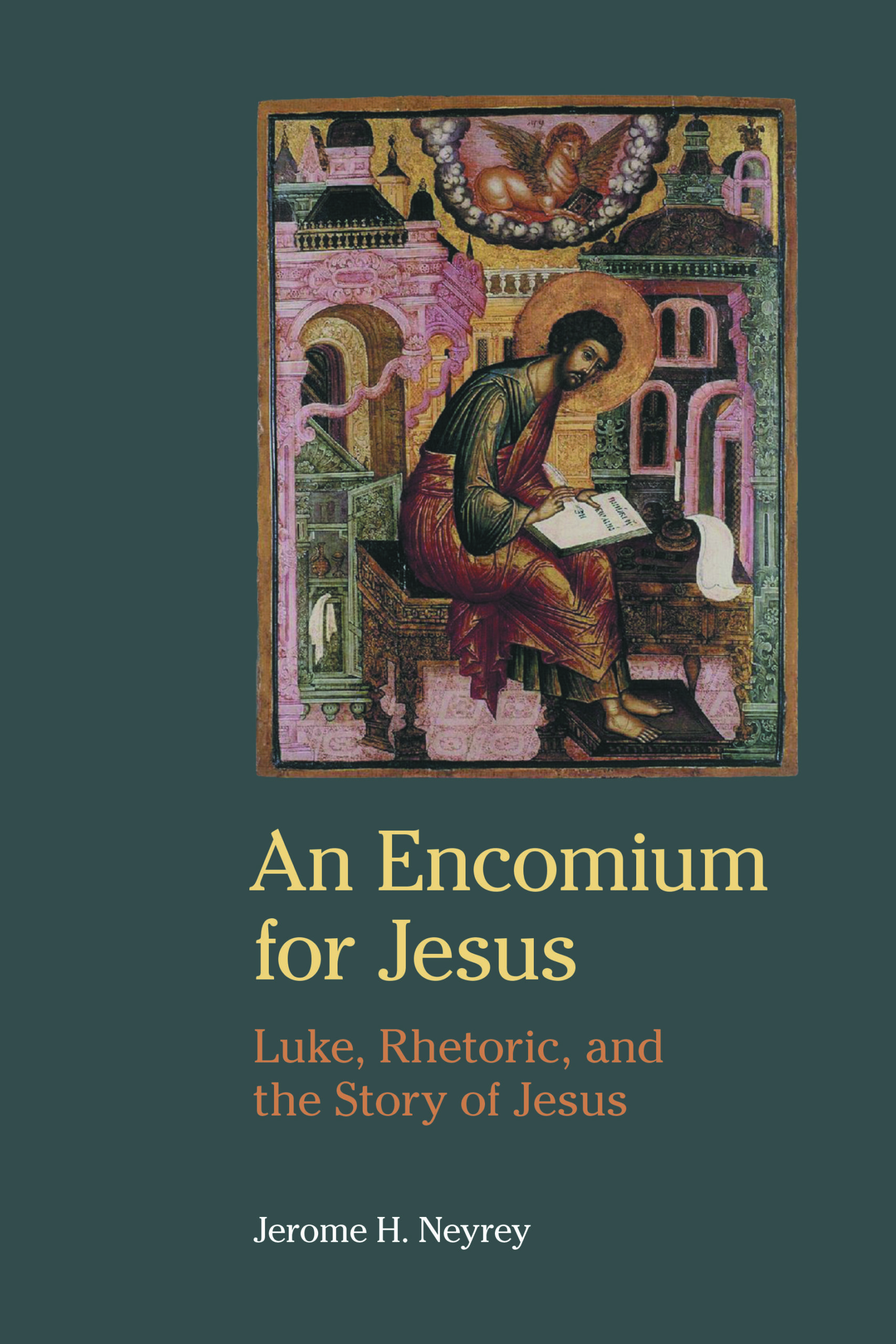
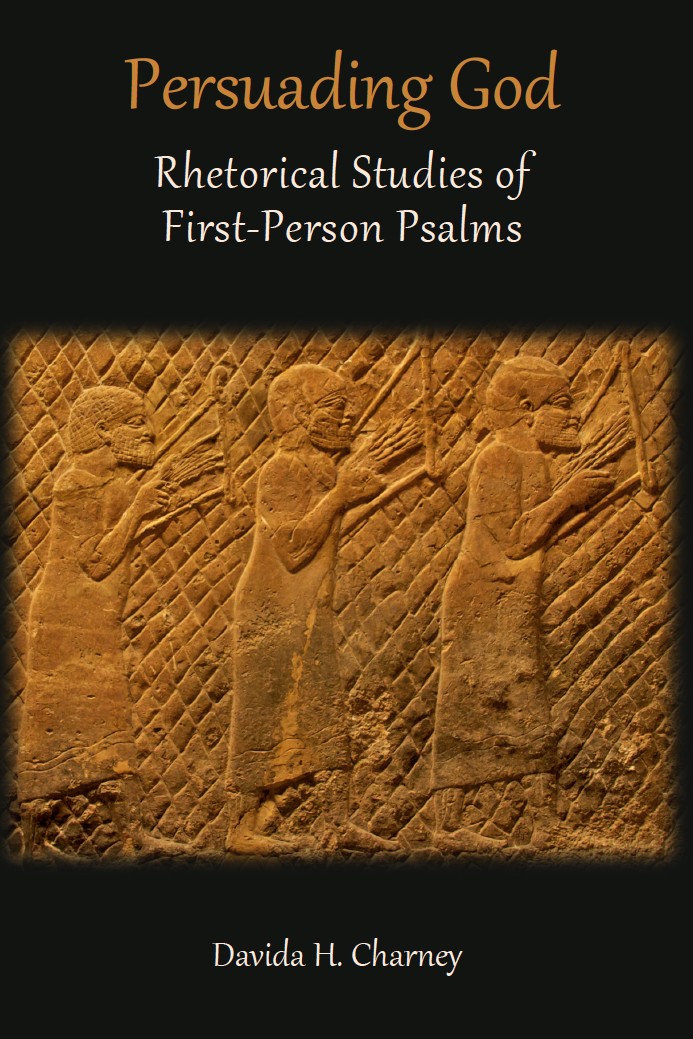

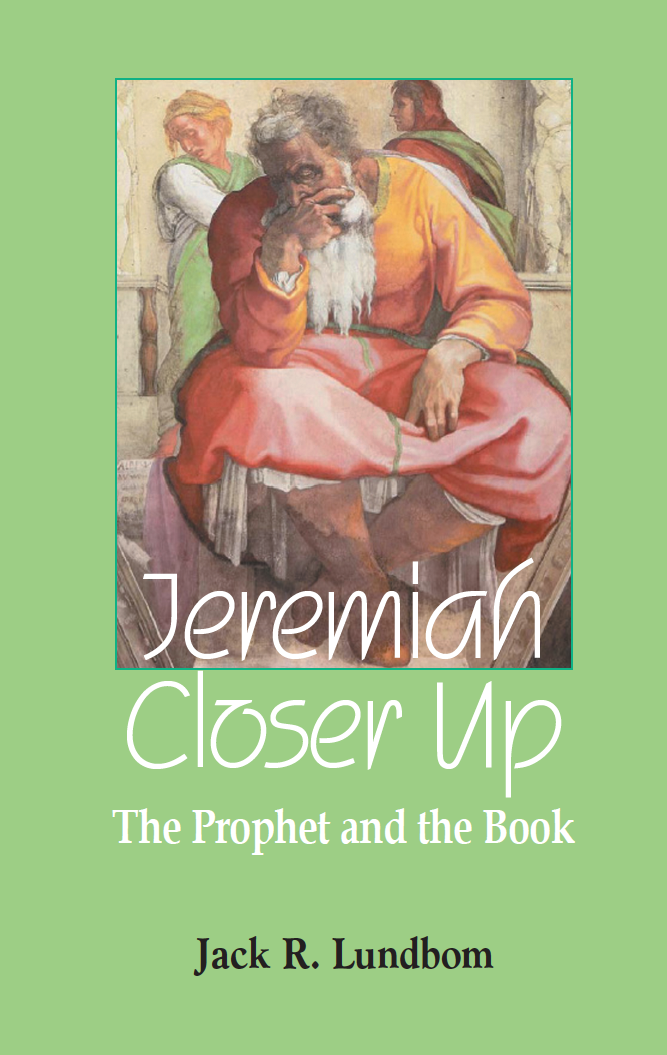
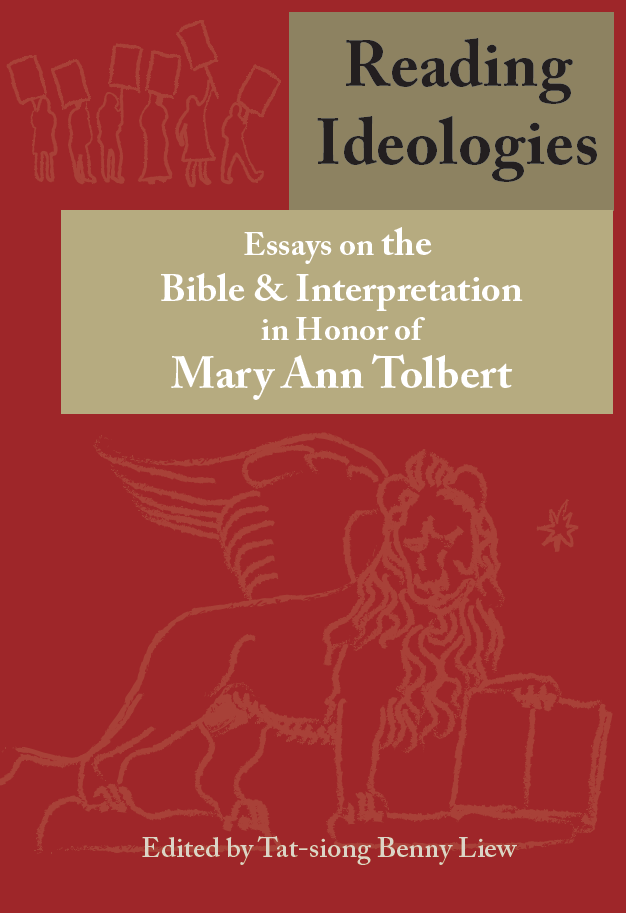
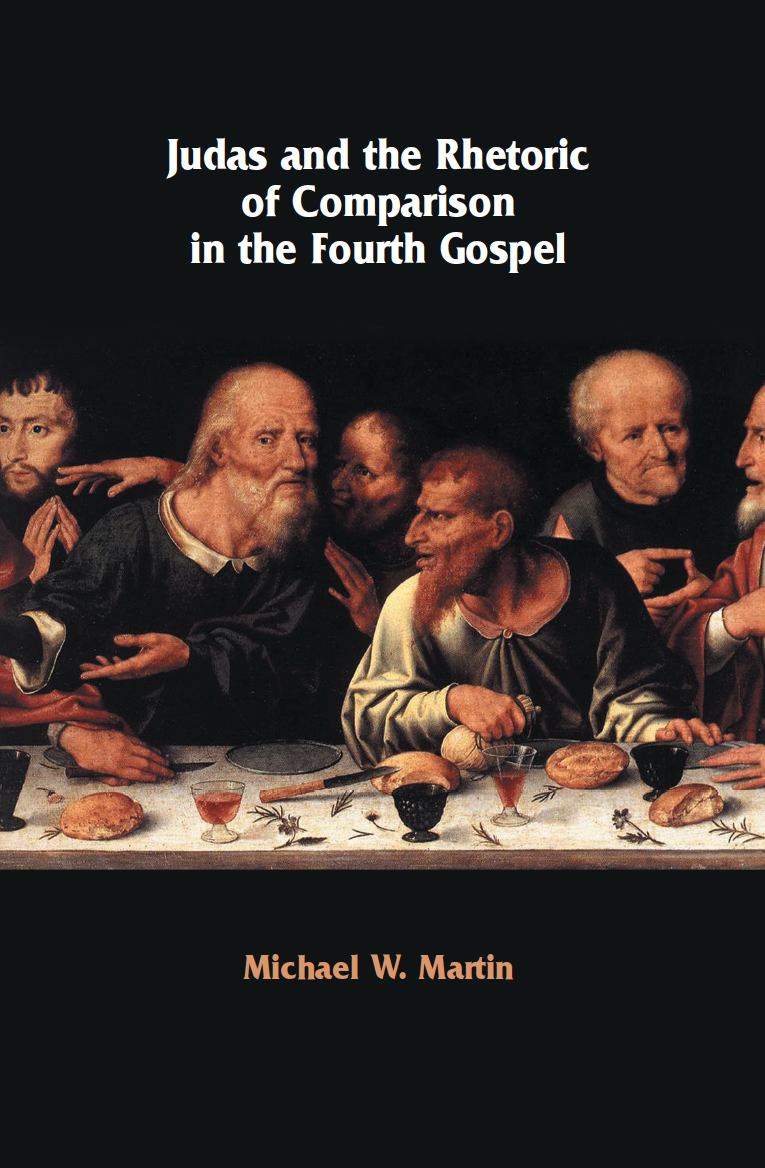


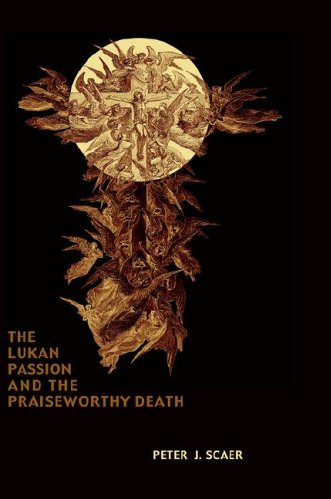
Nahum, Second Edition
Nahum, Second Edition